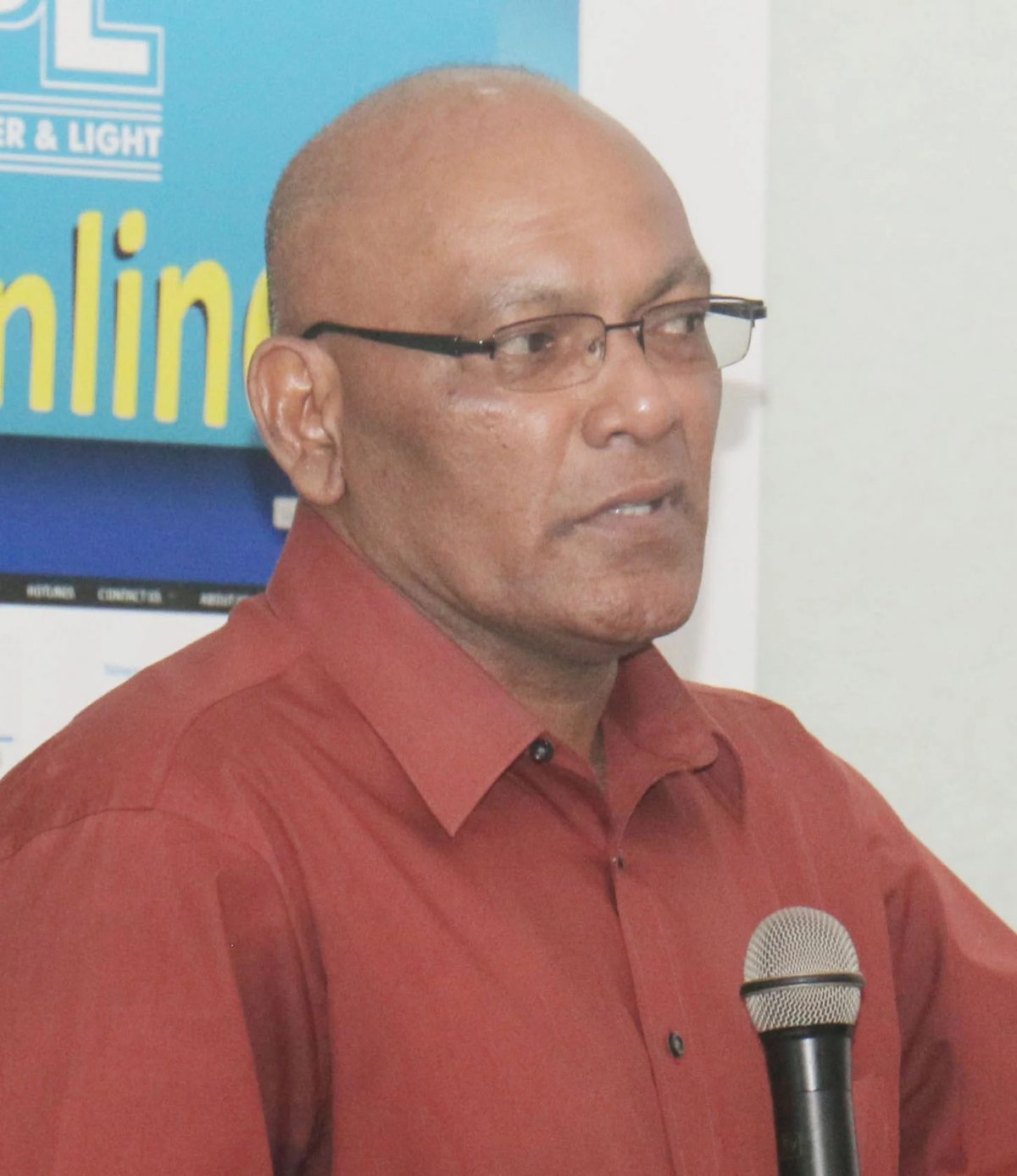The Guyana Power and Light (GPL) today announced the appointment of Bharat Dindyal as Chief Executive Officer (CEO).
The appointment, according to a GPL press release, is effective from today.
Dindyal had served previously as CEO. He takes over from Jamaican Albert Gordon who did not seek a renewal of his contract.
The GPL release said that the appointment of Dindyal forms part of GPL’s plans to modernize, expand and improve electricity supply.
It noted that Dindyal has over 26 years’ experience in engineering services and operation of electric utilities, and is no stranger to GPL having served as CEO from 2006-2015.
Dindyal’s service as CEO was ended by the APNU+AFC administration on August 14, 2015. In a statement issued then, the government had said that Dindyal’s substantive contract came to an end on December 31, 2014 and there had been no renewal. The statement pointed out that Dindyal continued to serve as GPL CEO based on what was described as “an understanding” between himself and the previous subject minister, former Prime Minister Samuel Hinds.
The statement said that there was no written documentation as regards this “understanding”. However, the statement said that based on information provided this “understanding” was apparently for a six-month period which commenced on January 1, 2015 and concluded on June 30, 2015.
The statement went on to say that Dindyal communicated to the new subject Minister, David Patterson that he intended to part ways with GPL but was prepared to remain as CEO for an interim transition period.
“Minister Patterson, having thoroughly examined these pertinent facts along with Mr. Dindyal’s intervention in matters relating to staff (some of which was video recorded and has been extensively viewed on social media) and his own performance appraisal and other relevant information, last evening advised Cabinet of the decision to conclude Mr. Dindyal’s engagement with GPL”, the statement had added.
The ending of Dindyal’s employment as CEO in 2015 had come after an ongoing clash with his then deputy, Colin Welch whom he had accused of overstepping his authority by trying to send senior managers on leave and forcibly removing them from company offices.

